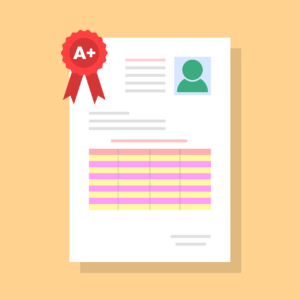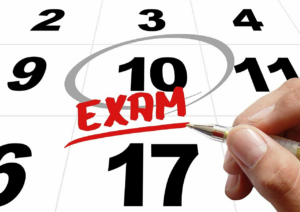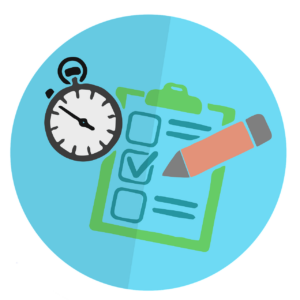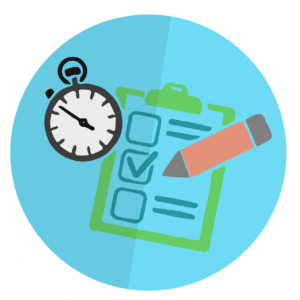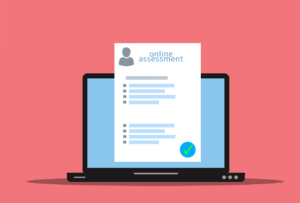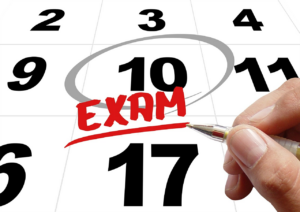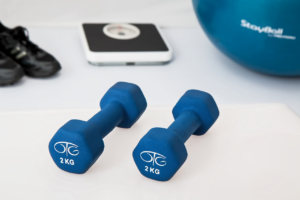Are you preparing to take the National Council Licensure Examination (NCLEX)? As you may already know, this exam is a crucial step towards obtaining your registered nurse (RN) or licensed practical nurse (LPN) license. But one question that may be on your mind is, how long does the NCLEX exam take?
The answer is that the NCLEX exam can take up to six hours to complete. This may sound like a daunting amount of time, but with the right time management strategies, you can make the most of it and increase your chances of success.
In this article, we will explore the format of the NCLEX exam, the importance of time management, pacing yourself during the exam, and strategies for answering questions. We will also provide tips on staying focused throughout the exam and the importance of practice in preparing for the NCLEX.
So, let’s dive in and get ready to conquer the NCLEX exam!
Key Takeaways
- The NCLEX exam can take up to six hours to complete and is computer adaptive testing (CAT)
- The exam covers four major categories with subcategories to master and a maximum of 265 questions
- Effective time management strategies, such as using a timer and prioritizing questions based on difficulty, can help prevent fatigue and increase chances of success
- Test-taking strategies, such as reading entire questions carefully, eliminating obviously incorrect answers, and avoiding distractions, can also lead to success, as well as maintaining a positive mindset and practicing relaxation techniques to manage stress.
Understanding the NCLEX Exam Format
Get ready to tackle the NCLEX exam format head-on and conquer it like a boss! The NCLEX exam structure consists of computer adaptive testing (CAT), which means that the difficulty level of the questions will vary based on your responses.
The exam content overview consists of four major categories: Safe and Effective Care Environment, Health Promotion and Maintenance, Psychosocial Integrity, and Physiological Integrity. Each of these categories has subcategories that you need to master before you take the exam.
The NCLEX exam typically takes six hours to complete, but it can vary depending on how quickly you answer the questions. You will have a maximum of 265 questions to answer, but you can finish the exam earlier if you answer the minimum number of questions required to pass.
To manage your time effectively, you need to use a timer and divide your time equally among the four major categories. You should also take breaks every two hours to prevent fatigue and maintain focus.
With these time management strategies, you can tackle the NCLEX exam format like a pro and pass with flying colors.
Importance of Time Management
You can improve your chances of success by mastering the art of efficiently using every precious moment during the NCLEX. Effective techniques for time management can help you stay on track and avoid getting bogged down in any one question.
For example, one strategy is to quickly skim through the question and answer choices before diving into reading them in detail. This allows you to get a sense of what the question is asking and what your options are before spending too much time on any one answer.
Time-saving tips are also important during the exam. For instance, if you come across a question that you don’t know the answer to, don’t waste too much time on it. Instead, make an educated guess and move on.
Remember, every second counts during the NCLEX, so you need to stay focused and keep moving forward. By using effective time management techniques and staying focused on the task at hand, you can increase your chances of passing the NCLEX and achieving your dream of becoming a licensed nurse.
Pacing Yourself During the Exam
During the test, it’s vital to maintain a steady pace and avoid becoming overwhelmed by the pressure of the situation. Effective techniques for pacing yourself during the NCLEX exam include using your time wisely, answering questions in order, and taking breaks when necessary.
One tip is to prioritize questions based on difficulty, starting with the easier ones and saving the more difficult ones for later. Another tip is to not spend too much time on any one question. If you’re struggling with a question, it’s better to move on and come back to it later rather than spending too much time and potentially missing out on easier questions.
Taking breaks can help alleviate stress and help you stay focused. Remember to take deep breaths, stretch, and drink water during your breaks to help you stay alert and energized.
By using these tips and tricks, you can pace yourself effectively during the NCLEX exam and improve your chances of success.
Strategies for Answering Questions
Ready to tackle the NCLEX exam? Let’s dive into some key tips for answering questions effectively.
Effective learning is the foundation of test preparation, so it’s important to start with a solid understanding of the material. Review key concepts, practice questions, and consider working with a tutor or study group to solidify your knowledge.
When it comes to answering questions on the NCLEX, there are a few key strategies that can help you succeed. First, read the entire question carefully and make sure you understand what it’s asking. Then, eliminate any obviously incorrect answers, and consider what each remaining option is really saying. Look for key phrases or words that might indicate the best answer.
Finally, trust your gut and choose the option that feels most correct to you. With these strategies in mind, you’ll be well on your way to success on the NCLEX exam!
Staying Focused Throughout the Exam
To stay focused throughout the NCLEX exam, you need to avoid fatigue, maintain concentration, and manage stress.
You can avoid fatigue by taking short breaks and staying hydrated. Maintaining concentration is key to answering questions effectively, so try to eliminate distractions and keep your mind focused on the task at hand. Lastly, managing stress is important to keep a clear head and avoid becoming overwhelmed.
Remember to take deep breaths and stay positive throughout the exam.
Avoiding Fatigue
It’s crucial to prioritize avoiding fatigue when preparing for the NCLEX exam, as burnout can significantly impact your performance on test day. To prevent fatigue, it’s important to take regular breaks throughout your study sessions.
Tips for rest and breaks include taking a short walk, practicing deep breathing exercises, or getting a quick snack. Additionally, make sure to get enough sleep each night leading up to the exam, as lack of sleep can lead to exhaustion and decreased cognitive function.
Another way to avoid burnout is to create a study schedule that allows for adequate breaks and downtime. Don’t try to cram all your studying into one day or week, as this can lead to burnout and decreased retention of information.
Instead, break up your study sessions into shorter, more manageable chunks, and take breaks in between to rest and recharge. Remember that taking care of your physical and mental health is just as important as studying for the exam itself, and prioritizing self-care can ultimately lead to better performance on test day.
Maintaining Concentration
Now that you’ve learned about avoiding fatigue during the NCLEX exam, it’s time to focus on maintaining concentration. This is crucial to ensure that you’re able to answer questions accurately and efficiently. Concentration techniques and mental stamina are key to acing the NCLEX exam.
Firstly, make sure you take breaks when necessary. Don’t try to push through when you’re feeling mentally drained. Take a few deep breaths, stretch your legs, and clear your mind. This will help you come back refreshed and ready to tackle the next set of questions.
Secondly, try to eliminate distractions. Find a quiet place to take the exam and turn off your phone. You don’t want anything taking away your focus from the task at hand.
Lastly, stay positive and confident in your abilities. Believe in yourself and trust that you’ve prepared enough to pass the exam. Remember, staying calm and relaxed can go a long way in helping you maintain concentration and mental stamina throughout the NCLEX exam.
By incorporating these concentration techniques and mental stamina strategies, you’ll be able to stay focused and alert throughout the entirety of the NCLEX exam. Don’t let exhaustion and lack of concentration hinder your success. Remember, preparation is key, but taking care of your mental health is just as important. Good luck!
Managing Stress
Feeling stressed during the nursing licensure test can be overwhelming, but there are ways to manage and alleviate it. One effective method is to practice relaxation techniques.
Deep breathing exercises, meditation, and visualization are all great ways to calm your mind and reduce your anxiety. Before the exam, take some time to sit quietly and focus on your breath. Inhale deeply through your nose and exhale slowly through your mouth. Visualize yourself successfully completing the exam and passing with flying colors.
Another key factor in managing stress during the NCLEX exam is maintaining a positive mindset. Instead of dwelling on your fears and doubts, try to focus on the positive aspects of the situation.
Remind yourself of all the hard work and preparation you’ve put in to get to this point. Believe in your abilities and trust that you have the knowledge and skills to succeed.
Remember, a positive attitude can go a long way in reducing stress and boosting your confidence. With the right mindset and relaxation techniques, you can conquer the NCLEX exam and become a licensed nurse.
Practice, Practice, Practice
Mastering time management strategies for the NCLEX exam requires consistent practice, which can ultimately lead to a greater sense of confidence and success on test day. One effective technique for practicing time management is to take simulated exams. These exams simulate the testing environment and can help you identify areas of weakness where you may need to spend more time during your actual exam.
Additionally, simulated exams can help you get used to the timing of the exam, helping you to better manage your time during the actual test. Another effective technique for practicing time management is to create a study schedule that includes designated periods of time for each section of the exam.
By breaking down your study time into manageable chunks, you can ensure that you are giving each section the attention it deserves, while also avoiding burnout. Furthermore, sticking to a schedule can help you avoid procrastination and ensure that you are adequately prepared for test day.
With consistent practice and effective time management techniques, you can increase your chances of success on the NCLEX exam.
Frequently Asked Questions
What is the passing score for the NCLEX exam?
To pass the NCLEX exam, you need to score above the minimum passing standard. The NCLEX exam passing score is determined by a computerized algorithm that adapts to your level of competency. The algorithm is designed to determine your level of competency.
The NCLEX exam score breakdown shows how many questions you answered correctly in each category. The passing score for the NCLEX exam varies depending on the type of exam you are taking and the state in which you are taking the exam. However, the minimum passing standard is the same for all exams.
It’s essential to prepare well for the NCLEX exam and to understand the scoring system to ensure you are successful.
How many times can you retake the NCLEX exam if you fail?
If you fail the NCLEX exam, don’t worry, you can retake it. The number of times you can retake the exam depends on the state where you’re taking it. Generally, most states allow you to retake the exam up to 3 times within a year.
However, there’s usually a waiting period between attempts, so it’s important to use your time wisely and strategize how to improve your chances of passing. Some failing strategies include reviewing your weak areas, practicing with NCLEX-style questions, and seeking additional support from tutors or study groups.
Remember, failing the NCLEX exam doesn’t mean you’re not cut out to be a nurse, it just means you need to work harder to achieve your goals.
Can you bring your own calculator to the exam?
You may bring your own calculator to the NCLEX exam, but there are some restrictions on which calculators are allowed. The calculator options include basic models that can add, subtract, multiply and divide, with no additional functions or features.
Advantages of using a personal calculator include familiarity with the device, fewer distractions, and a better chance of avoiding errors. However, it’s important to note that the exam will provide an on-screen calculator for your use, so bringing your own is optional.
If you do decide to bring a personal calculator, make sure it meets the NCLEX calculator requirements and is in good working condition.
Are breaks allowed during the NCLEX exam?
Yes, breaks are allowed during the NCLEX exam. However, the amount and length of breaks may vary depending on the specific testing center.
To stay focused during the exam, it’s important to take advantage of the allowed breaks by using them to step away from the computer, stretch, and take deep breaths to manage any anxiety. It’s also helpful to develop strategies for managing anxiety before the exam, such as practicing relaxation techniques and positive self-talk.
Additionally, staying organized and managing your time effectively can help reduce stress during the exam. Remember to pace yourself and allot enough time for each question, while also keeping an eye on the clock to ensure you have enough time to review your answers before the exam ends.
What is the maximum time allowed to complete the NCLEX exam?
The maximum time allowed to complete the NCLEX exam depends on the NCLEX exam format that you’re taking.
The NCLEX-RN exam allows for a maximum of six hours to complete the exam, while the NCLEX-PN exam allows for a maximum of five hours.
It’s important to keep in mind that the exam is computerized and adaptive, meaning that the number of questions and time spent on each question will vary depending on your performance.
To effectively manage your time during the exam, it’s important to stay focused, read the questions carefully, and answer each question to the best of your ability.
Don’t spend too much time on any one question, and if you’re feeling stuck, take a deep breath and move on.
Remember, time management is key to passing the NCLEX exam, so make sure to practice good time management strategies during your test preparation as well.
Conclusion
Congratulations! You’ve made it to the end of the article.
Now that you have a better understanding of the NCLEX exam format, the importance of time management, and strategies for answering questions, you are well on your way to passing the exam.
Remember to pace yourself during the exam and use the strategies discussed to stay focused and answer questions efficiently. And don’t forget the most important strategy of all: practice, practice, practice!
With dedication and preparation, you can conquer the NCLEX and start your career as a licensed nurse. Good luck!









